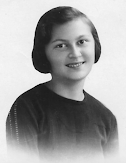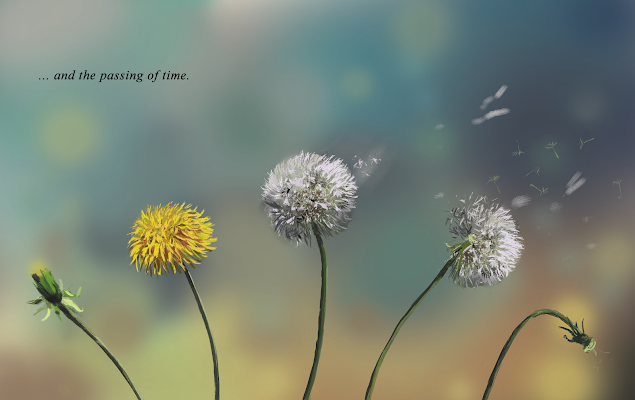It's the "release day" for Donation! That means that the Ingram Group, which handles distribution of the paperback edition to everyone except Amazon (where I put it up separately), has switched the book's status from "preorder" to "available." You can now order the paperback from such retailers as Barnes & Noble. If your local bricks-and-mortar store isn't carrying it, you can ask them to order it in.
Of course, the Kindle and paperback editions are still on Amazon.
I'm celebrating by posting one more excerpt. This one's from the point of view of Adam Brown, one of the adoptive parents the Bureau of Reproductive Safety has chosen to adopt Toni's child. It's perhaps unusually lively for an account of a lawyer preparing clients for a deposition. (A deposition is the pretrial examination of a witness who may or may not be called at trial, made under oath, but rarely in an actual courtroom.)
-------
When they had served their time in the waiting room and a receptionist admitted them to Mr. Voxsmith’s office, the lawyer immediately led them to a conference room whose furnishings struck Adam as unusual. The table was smooth, polished wood, an elegant oval, but the chairs were straight-backed wood with no arms and less than ample seats. Mr. Voxsmith waited until they had seated themselves, rather gingerly in Adam’s case, before he explained. “The plaintiff’s lawyer may decide to make you uncomfortable. I didn’t want it to take you by surprise, and you can practice ignoring it.”
Adam practiced ignoring the chair while the lawyer ran through some basic instructions. Common sense, mostly: don’t volunteer information; don’t answer unless you know the answer of your own knowledge; don’t guess what a question means; don’t lose your temper; tell the truth. As to that last, Mr. Voxsmith elaborated. “If you try to color the facts, let alone outright lie, then you have to remember what you said. That’s hard when you’re nervous, and lawyers are very good at making people nervous. And unless you’re habitual liars, lying is emotionally exhausting, especially if you have to do it over and over. And if you get caught — well, to use the precise legal phrase, you’re toast.
“Let’s move on from physical discomfort to other sorts. I’m going to start with some personal questions. I’ll point at whichever of you should answer — we’ll save time by skipping the Mr. This and Ms. That. Ready? Here we go.”
The lawyer pointed at Grace. “How long did you try to conceive naturally before giving up?” Then he looked not at Grace but at Adam, assessing his reaction. Adam had shifted in his chair and clenched one fist. The lawyer lifted an eloquent eyebrow; Adam forced himself to sit still with hands open on his lap.
Meanwhile Grace had started answering the question. “We tried for four years. But really, we’ve never stopped trying.”
Mr. Voxsmith, to Adam’s astonishment, took a kazoo out of his pocket and blew on it twice. “This is my buzzer. When you hear it, you know you screwed up somehow. Ms. Allen, you made two mistakes. You contradicted yourself, and you gave the enemy some ammunition. You wouldn’t necessarily find that out until the trial, when you’re on the stand and opposing counsel brings up that statement in cross-examination, asking why you’re insisting on seizing this poor woman’s baby if you haven’t given up on your efforts to conceive.”
Grace gulped and said, “What should I have said, then?”
The lawyer wagged his finger. “No, no. I can’t tell you what to say. That’s coaching the witness.” He turned toward Adam. “Mr. Brown, do you have any suggestions?”
Adam thought for a moment. “She could say that we tried for four years before deciding it just wasn’t going to happen. That’s true, even though we can’t help hoping a little bit anyway.”
The lawyer did not reply; apparently, the absence of a kazoo blast was sufficient approval. He pointed at Adam next. “Describe the methods you used in your attempt to conceive naturally.”
Adam couldn’t help staring. “Can they really ask me that?”
“They might. That or something else equally obnoxious. Partly in the hope of throwing you off balance. So — give.”
Adam gritted his teeth, then had to relax his jaw to answer. “Once we decided we needed help, we used two positions recommended by our fertility specialist.”
The finger stayed pointed at Adam. “Did you get a second opinion?”
“Ah — no.” As Adam opened his mouth to say more, out came the kazoo again. BLAT!
“Don’t guess at a followup question and then try to answer it.” Now it was Grace’s turn again. “What percentage of your annual income did you spend on your effort to conceive during those four years?”
Grace was good with numbers, both remembering them and calculating them. “Approximately fifteen percent.” How should Adam answer the same question? “I don’t know,” probably. Except now he did — he trusted Grace. But no, he wasn’t supposed to answer out of anything but firsthand knowledge.
Still Grace’s turn. “And what is that annual income?”
Adam blinked at Grace’s answer. Were they really doing that well?
Back to Adam. “Did you consider spending more?”
Had they? “I don’t remember.”
No kazoo. Good. Here came the next question, for Grace. And a gleam in the lawyer’s eye suggested it would be the nastiest one yet. “When you applied to adopt, did you anticipate that you would be depriving an unwilling mother of her baby?”
Grace’s eyes went wide in distress. The lawyer blew a short, somehow softer note on the kazoo. “Of course you didn’t, and there’s no need to hesitate. You can just say a businesslike ‘no.’ Remember the plaintiff, the donor, was willing. She’s not claiming anyone ambushed her and drugged her. She came in of her own accord, signed the papers voluntarily, lay on a table in a procedure room instead of jumping up and running out.”
He looked back and forth between the two of them. “Getting tired? Well, we’ve only just started. So the night before the real thing, get plenty of rest. Eat hearty, if you can, the morning of the deposition, but nothing that’ll upset your stomach. And wear comfortable clothes. We want you focused, not distracted. Focused, but as close to relaxed as possible. If there are activities that help you relax, plan on doing them the night before or even that morning.”
Adam started to fight the smile that came, and then decided not to bother. He turned to Grace and winked. “I think we can manage that.”
A smile lit her face, and she winked back. The lawyer waited ten whole seconds before interrupting them, kazoo at the ready. “Back to work.”
-------
And here, one more time, is my favorite 3D mockup of the cover (from KAM Design).














